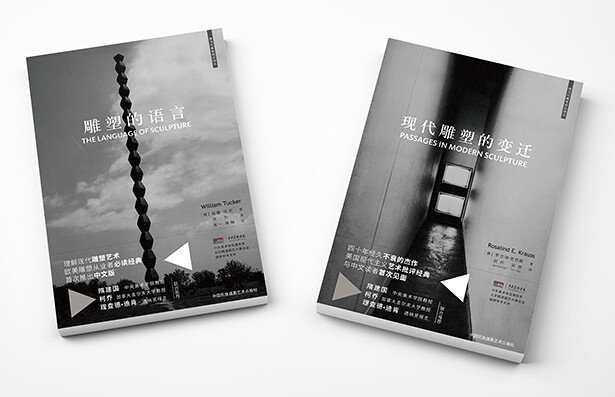Sui Jian Guo Art Foundation
Room 506, 751 Art Zone
Chaoyang District, Beijing
China
Central Academy of Fine Art
8 Huajiadi South Street
Chaoyang, Beijing
China
ShanghART Gallery
Bldg.#10, 2555 Longteng Avenue
Xuhui, Shanghai
China
mp.weixin.qq.com/s/epG0c7JoHf7bwuOid3doOg
The Sui Jian Guo Art Foundation is a non-profit charitable organization founded by the Chinese artist Sui Jian Guo in March, 2016, the first initiative of its kind in China. The mandate of the organization is to encourage public appreciation of the visual arts, especially modern and contemporary sculpture, and to preserve Sui’s legacy at home and worldwide. The foundation aims to establish an educational platform in support of critical research and practices that can enhance public knowledge of the past and present of sculpture.
Foremost among the foundation’s initiatives is the publication of the Translations in Modern and Contemporary Sculptural Theory, an ongoing series of critical and historical texts specifically related to sculpture.
In December 2016, the first two translations in the series, Passages in Modern Sculpture by Rosalind Krauss, and The Language of Sculpture by William Tucker will be launched in Shanghai and Beijing.
Book launch
Beijing: Saturday, December 10, 2pm
Sculpture Department, Central Academy of Fine Art Beijing
Shanghai: Wednesday, December 14, 3:30–6:30pm
ShanghART Gallery, West Bund, Shanghai
There is a persistent argument shared among Chinese art theorists and critics which suggests that sculpture in China has no history. This situation is due in part to the scarcity of literature on the subject and results in a lack of sufficient discourse to support the development of theory and criticism on sculpture in China.
In an effort to improve this situation, the Sui Jian Guo Art Foundation in Beijing, the Sculpture Department at the Central Academy of Fine Arts, and the China National Photographic Art Publishing House, announce the publication of an on-going series of translations on the subject of sculpture: Translations in Modern and Contemporary Sculptural Theory.
The Foundation plans to publish two to three titles every year, translated and edited by art professionals and practicing sculptors. An editorial board consisting of international professionals and leading figures in the field will be responsible for the selection of significant texts from the past 100 years.
2016 Translations
Passages in Modern Sculpture and The Language of Sculpture are considered milestones in the history of modern art criticism. Sui Jian Guo, renowned sculptor and co-editor of the series remarks, “Both books were written in 1970s, and provide a clear overview of sculptural history from Rodin to Brancusi and the minimalists… British sculptor William Tucker developed his argument from a European perspective, Rosalind Krauss speaks from an American point of view. Reading the two books in comparison can provide Chinese readers with great exposure to a significant moment in Western Art History.”
Written in 1977, Passages in Modern Sculpture is American art critic Rosalind Krauss’ first major work, and the one that establishes her reputation. The translation is a collaboration between curator Yan Wu (Art Museum at University of Toronto) and artist James Carl (University of Guelph, School of Fine Art and Music). From a standpoint of cultural sustainability, Passages is among the most enduring texts of 20th Century American art criticism. It has been in print continuously for more than 40 years. From a historical perspective, it is one of the first books to fully incorporate the then novel ideas of “French Theory” into an assessment of modern sculpture. Krauss brings aspects of structuralism, phenomenology, and psychoanalysis to bear on modern sculpture.
Written from the perspective of a sculptor and practitioner, William Tucker’s The Language of Sculpture, originally published in 1974, discusses Rodin alongside six case studies of European artists whose work, while progressing along diverging paths, shows clear evidence of Rodin’s influence. This publication is translated by young sculptors Xu Sheng and Zhang Yi, and includes Tucker’s original book and several essays written in the 1980s. As supplementary reading, this volume also collects a number of important interviews and articles on Tucker’s own practice.
Artist and co-editor James Carl, reflects, “Among our primary hopes in translating this book is that it can be useful to sculpture students in China. The Sculpture Department at the Central Academy, a place which has been literally central to discussions around contemporary art in China, seems like the ideal place for such a book to be born.”
Contact: Sui Jian Guo Art Foundation, Li Bin, T +86 138 100 92889



